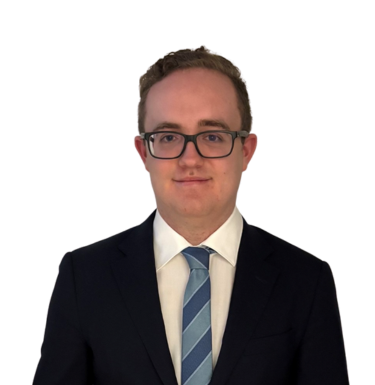Case note: Health Care Complaints Commission v FLJ [2023] NSWCATOD 7
Key takeaways
- Health professionals convicted of serious criminal charges, such as domestic violence, may have their medical registration suspended. This applies if their offending conduct demonstrates traits that are inconsistent with the values of the medical profession and brings the medical profession into disrepute.
- Health professionals are often at the frontline of treating domestic violence victims and therefore it is not in the public interest for health professionals to be perpetrators of this serious criminal conduct.
- Courts and Tribunals will determine whether a professional is fit in the public interest to practise medicine based on criminal convictions that arise from conduct in their “personal life” even if it does not have any relation to their professional responsibilities if the offence is serious in nature.
Background
In March 2021, a gastroenterologist (referred to by the pseudonym, “FLJ”) pleaded guilty and was convicted of serious domestic violence offences by a Local Court. These offences included:
- assault in the context of domestic violence
- the use of a carriage service to harass and stalk the victim
- distributing an intimate image of the victim without consent
- intimidation of the victim with the intent to cause fear of physical harm.
The offences were perpetrated over a three year period against FLJ’s female colleague and occurred in the breakdown of their intimate relationship. The magistrate described the offending conduct as severe and targeted. However, rather than receive a custodial sentence, FLJ was sentenced to a non-custodial community corrections order of 12 months on the condition that he attended sessions with a treating psychologist.
In breach of s 130 of the Health Practitioner Regulation National Law Act 2009 (Cth) (the “National Law”), FLJ failed to notify the Australian Health Practitioners Regulation Agency (“AHPRA”) of his criminal conviction of an offence punishable by 12 months or more imprisonment within a seven day period. The Medical Council of NSW (“the Council”) was informed of the charges against FLJ and under s 150 of the National Law, made the decision to temporarily suspend his registration.
In 2022, the Health Care Complaints Commission (the “HCCC”) initiated proceedings against FLJ in the New South Wales Civil and Administrative Tribunal (“NCAT”) and sought the following orders:
- the practitioner should be reprimanded for breaching his obligation under s 130 of the National Law by failing to notify AHPRA of the charges against him within a seven day period.
- the practitioner’s registration should be suspended or cancelled for a non-review period of two years in light of his criminal conviction rendering him unfit in the public interest to practice medicine under s 149C(1)(c) of the National Law.
S 149C(1)(c) of the National Law provides:
(1) The tribunal may suspend a registered health practitioner’s registration for a specified period or cancel the registered health practitioner’s registration if the tribunal is satisfied –
(c) the practitioner has been convicted or made the subject of a criminal finding for an offence, either in or outside this jurisdiction, and the circumstances of the offence render the practitioner unfit in the public interest to practise the practitioner’s profession.
During the hearing of the proceedings before NCAT, FLJ, as the respondent, submitted to NCAT that a tribunal may only suspend a practitioner if the offending conduct had a sufficient “nexus” or relation to their professional responsibilities. This position would make the “personal” criminal convictions of health professionals not relevant under s 149C(1)(c) unless it could be established that the offence placed patients at risk or occurred in the course of a practitioner’s work life and occupation.
NCAT’s Decision
NCAT ruled that where a registered practitioner is convicted of a criminal offence that, by its own charge, demonstrates traits and offending conduct that is inconsistent with the ethical values of the medical profession or brings the profession at large into disrepute, it may impose severe conditions on the registration of the practitioner.
NCAT rejected the respondent’s submission that the power to suspend or cancel a health professional registration is only available to the tribunal when the offending conduct that makes up the criminal offence had a “nexus” with their occupational responsibilities or medical practice. In other words, the criminal conduct need not be related to a practitioner’s work.
In reaching this decision, his Honour Principal Member Watts reasoned that the decision to suspend registration in light of a criminal conviction requires an “evaluative judgment” where the tribunal will adopt a values-based approach to determine whether the offence is so serious that it would undermine the integrity of the medical profession if the practitioner was not disciplined for their serious criminal conduct.
His Honour referred to the similar case of Health Care Complaints Commission v Lidman [2020] NSWCATOD 48 where a practitioner was convicted of domestic violence offences:
Medical practitioners by virtue of their role in the societal framework are often first points of contact for domestic violence victims. The ability of the public to entrust their care to a doctor is jeopardised if the public cannot trust that the doctor to whom they may wish to disclose domestic violence is not an upstanding empathetic confidant, but rather is a perpetrator.
It is clear that NCAT’s ‘values-based approach’ framed domestic violence as a serious criminal act when the medical profession treats victims of this crime and is required to be comprised of upstanding members of society.
FLJ was reprimanded for his breach of his strict obligation to self-notify of the charges against him and suspended from practise for a seven month period. The order to suspend FLJ for seven months did consider the fact that FLJ’s registration had been suspended since 2020.
This ruling confirms that the test of whether a practitioner’s criminal conviction renders them unfit in the public interest to practice, as outlined in Crickitt v Medical Council of New South Wales (No 2) [2015] NSWCATOD:
A consideration of the need for patients to have confidence in the competence of medical practitioners and that medical practitioners will exhibit traits consistent with the honourable practice of an honourable profession. Integrity, trustworthiness and high moral and ethical values are an integral part of the practice of medicine, as is compliance with regulatory requirements and codes of practice established by those responsible for the administration of the profession.
Implications of the Decision
NCAT’s decision has three main implications for health professionals:
- Health professionals that are convicted of serious criminal conduct that is not related to their “work life” are still liable to the suspension or cancellation of their registration if the offence brings disrepute to the medical profession or undermines the ethical values of the medical profession. Further, a domestic violence offence is a serious criminal conduct.
- The fact that health professionals may treat victims of domestic violence suggests that it is not in the public interest that health professionals may be perpetrators of domestic violence.
- The obligation of a health professional to notify AHPRA of “relevant event” under Section 130 of the National Law is a strict obligation that will lead to a professional being reprimanded for unsatisfactory conduct if they do not meet this obligation.
This case note was written by Principal Nevena Brown and Paralegal Joshua Jones. For further advice, please contact Nevena.




 Meet our Team
Meet our Team View our Insights
View our Insights